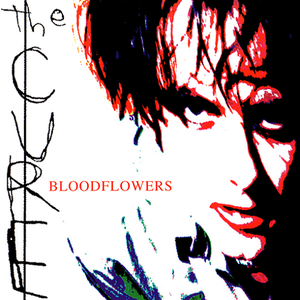Published on Jun 29, 2004
Parting is never easy, especially after a bond of more than two
decades.
Bloodflowers is sort of a farewell album by The Cure, and
every song seems to have been written by a moribund band,
distressed, and in a state of turmoil, reflecting the fragile state
of mind of a waning band.
The Cure had died long, long ago, with
Wish and the supporting live albums,
Show and
Paris, in 1993.
Wish was their best, and one of the most brilliant albums
created ever. Sadly however, a good chunk of the band left it,
leaving Robert Smith all alone, and expropriating him of the best
music-collaborators, he could ever work with. The magic of The Cure
wasn’t the same at all, with the new recruits. With all the charm
of the old ‘Cure’ missing, ‘The Cure’, post-
Wish, just couldn’t survive, and had to call it quits.
Bloodflowers is Robert Smith’s last attempt to resuscitate
and bring life into a dying band.
When it comes to melancholy, no one could write them as good as
The Cure.
Disintegration was a melancholic masterpiece, created when
The Cure was at its creative best. With
Bloodflowers, it seems as if Smith is crying out the tears
that he had forgotten cry out in
Disintegration, and had kept them bottled up for a decade,
to be released, when he needs help, the most. Alas, this time
however, his words and music just don’t seem to stir up the
traditional ‘Cure’ aura, and falter badly, groping for a deus ex
machina to save his band, and the album from drowning.
Even with a band he is not comfortable with, Smith still manages
to keep a flicker, if not the flame of the original ‘Cure’ alive,
in
Bloodflowers. The opening track, “Out Of The World”, much
like
Disintegration‘s “Plainsong”, sad and somber, bids farewell,
at the beginning of the album itself – A sort of a cheeky ploy by
Smith to dampen the spirits of the listener, no sooner the record
begins.
As the album progresses, each song, with almost the same mood as
“Out Of The World”, says goodbye, in its own lachrymose manner.
Here is where a hint of the beauty of the old ‘Cure’ gets alive and
kicking. “Where The Birds Always Sing”, “Last Day Of Summer” and
“The Loudest Sound”, each poignant, soulfully melodious and
touching, show Smith’s helpless state of mind, and make the
listener weep for this creative genius and his band in its
dotage.
“Watching Me Fall”, “39” and “Bloodflowers” show that Smith is
incapacitated due to reasons best known to him, as these numbers
drift aimlessly into nothingness from being real gems, never to
regain composure, loosing ground, and making fruitless attempts to
prove worthy of something which the album could be proud of.
The Cure is a band, which always seemed to understand, stand by,
and provide a dependable shoulder to cry on for its fans in their
times of pain. With
Bloodflowers however, the roles are reversed, and it is
Robert Smith and his band who seek sympathy from their loyal fans,
rather than they themselves providing some. This is indeed an album
by a great band on its deathbed.
Postscript: At the time of its making, and even after its
release,
Bloodflowers was meant to be The Cure’s last album. However,
surprisingly Smith is back with the band with a new ‘Cure’ record.
Nonetheless, this review was written, deliberately assuming the
fact that
Bloodflowers marks the end of ‘The Cure’, in all fairness to
the concept of
Bloodflowers, and to the intentions the band itself.
